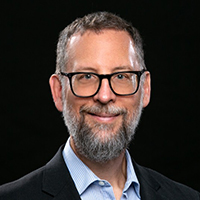Workers’ compensation is probably not the first choice of someone searching for a cool career. Although work comp includes technology and Big Data, risk management, actuarial science, sales and marketing, healthcare, legal, executive leadership and has a myriad of services to support an injured employee and their employer, most equate work comp with a “claims adjuster.” What comes to mind is someone navigating complicated regulations in a relatively thankless job who has become an eternal cynic. A claims adjuster’s correspondence often involves negative subjects like an accident that hurt somebody, physicians who feel underpaid, and lawyers “on the other side.” The person they’re trying to serve, the injured employee (stop using the word “claimant” except on state-mandated forms), can be overwhelmed, anxious, uncooperative and/or countless other descriptions. When looking at the rosters of insurance carriers and TPAs around the country, the empty seats show the results of the stigma that has been earned over time.
However, there is a movement to reimagine the claims adjuster. Some of that is because the newer generations want purpose and meaning in a job that matches their values. Changing their title from claims adjuster to a workers’ recovery professional, embracing concepts like claims advocacy, and focusing on a people-centric biopsychosocial model demonstrates a desire to make the claims process more human(e). It started as talk from conference stages but has gained traction at the supervisory and desk level over the past several years, especially as COVID forced everyone to reexamine their priorities.
A more recent lexicon change is to stop calling work comp an “industry” and start calling it an “ecosystem” where stakeholders work together as a team to accomplish the goal of RTW (return-to-work).
These changes in attitude and vernacular have gained momentum for one clear reason. The way work comp has been marketed to the rising generations is not appealing.
Some may say “marketing” is “spin,” but it is more about knowing your value then clearly, accurately and authentically broadcasting the message to those who it can benefit.
Every description of a claims adjuster from this point forward should start with the premise that they have a noble purpose.
Their role is to help a person (again, not a claimant) navigate potentially the most challenging time of their life and return to their job, income, colleagues, daily routine, and sense of self-worth and accomplishment as close to full health and function as quickly as possible. The competence of a claims adjuster can have a positive or negative effect on that person, their family, possibly generations. Competence means ensuring the right clinician is engaged at the right time, using empathetic communication to recognize red flags (like social determinants of health) that could slow progress, and encouraging the injured employee to be an active participant in their functional restoration.
The negative consequences of delayed recovery and return to their workplace compound every day so that person needs a guiding light to help them on that journey. The team that makes it happen is quarterbacked by the claims adjuster, someone whose value cannot be overstated.
Noble purpose. Noble purpose. Noble purpose. The more it’s said, the more it will be recognized as a reality.
*The views and opinions expressed in the Public Risk Management Association (PRIMA) blogs are those of each respective author. The views and opinions do not necessarily reflect the official policy or position of PRIMA.*

By: Mark Pew
Provost and Founding Partner, WorkCompCollege.com
Summary of Qualifications
Mark is an award-winning international speaker, author and jurisdictional advisor in workers’ compensation. The RxProfessor has focused on the intersection of chronic pain and appropriate treatment since 2003. Mark created “Qualified Medical Intervention” that won a 2012 Business Insurance Innovation Award. He received WorkCompCentral’s Magna Comp Laude award in 2016, IAIABC’s Samuel Gompers Award in 2017, “Top 100 Healthcare Leader” by IFAH in 2021 and the Health 2.0 Outstanding Leadership award in 2022. He is co-founder of The Transitions and is on the advisory boards of Harvard MedTech, Simple Therapy and Goldfinch Health.
Responsibilities
Mark is responsible for managing the ans and faculty and overseeing all curriculum and product development as provost. Given his role of long-time educator within the workers' compensation industry (over 670 presentations since 2012 to more than 65,000 people, hundreds of blogs and published articles, discussing important subjects before they become mainstream), this is the perfect application of his skills and passion. As one of the three founding partners of WorkCompCollege.com, he is also responsible for business management and strategy and is very active in sales and marketing activities.
Business Experience
Mark co-founded WorkCompCollege.com in 2022. He was senior VP of marketing & product development for Preferred Medical, a work comp PBM, from 2017 thru 2021. He led product development, sales and marketing at PRIUM, a work comp utilization management company, from 2000 thru 2017. He was a software developer, project manager , business analyst and department manager with Equifax / ChoicePoint from 1980 thru 2000.



